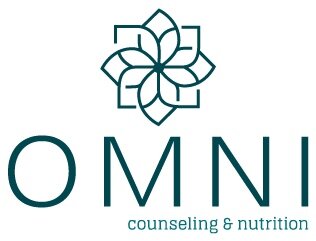Three Myths You Believe About Your Weight And Why They are Harmful to your Health
The problem with weight loss coaches and any other self proclaimed "experts" in the weight loss industry is that they often base your ideal weight either on a chart (like BMI) or some other arbitrary weight goal that they think you should be. The problem with this is that it does not take into account your own body and its set point. We all have a set point for our weight, and trying to get down to a weight that is lower than your set point is harming your health, physically and mentally.
I urge you to ask yourself what the desired outcome of weight loss is for you? Are you currently healthy, and you think you will look better being a smaller size? Or, do you have a medical reason why you think you need to lose weight? If it's the latter I suggest getting help from a trained professional, such as a registered dietitian to help work on changing habits rather than focusing on a number on the scale. If it's the former, I suggest you consider the implications of attempting to lose weight when it is unnecessary for health reasons, and purely for aesthetic reasons.
I have seen many people that have had no issues with food... until they went on a diet. After going on a diet, the restriction sparked a restrict/ binge cycle with food, and many people end up gaining weight from their "diet" and feeling worse about their bodies than before they engaged in the initial diet. And this is how "yo-yo" dieting starts, which has the potential to lead to the development of an eating disorder.
Myth #1: If you are not losing weight you are eating too much
Fact: Our bodies like to stay in homeostasis - or a stable equilibrium - and this includes your weight. Your set point weight is the weight in which your body can function most optimally. This varies from person to person and there is a vast spectrum of homeostatic weight. What you are eating, unless you are engaging in extreme behaviors on one side of the spectrum or the other is not going to have much of an impact on your weight. Your body is capable of managing the food you eat - for more info on how to trust that your body is capable of this follow this link to read up on Intuitive Eating.
Myth #2: If you have enough willpower you can get to your ideal weight
Fact: This has been proven wrong. Research shows that willpower, just like a muscle, will fatigue and burn out. So, relying on willpower to help you lose weight will not work. If your overall food intake is not balanced and provides satiation, eventually you will not be able to stand being hungry and deprived anymore, you’ll go off your diet, and regain any weight you lost. This is the single most reason why 99% of people “fail” on their diets. The diets simply do not provide enough balance and satisfaction. This is also why I never give people diets. They are harmful and cause deprivation and rebound binging.
Myth #3: You will feel happy and confident when you reach your ideal weight
Fact: Unfortunately, no. I have worked with hundreds of people who have lost weight, gained weight, and lost weight again. When I ask them if they feel happier at their lower weight, their answer is almost always no. You might think that if you lose weight you will be a different person. But underneath your body, you are still the same person. If you feel insecure and you lose 20 pounds, you will still feel insecure just in a body that is a little bit smaller. If you want to feel better work on strengthening all of the things you think will be different when you lose weight. And start working on them now, in the body you have currently.
Help starts here. We’re a few clicks away, always.
